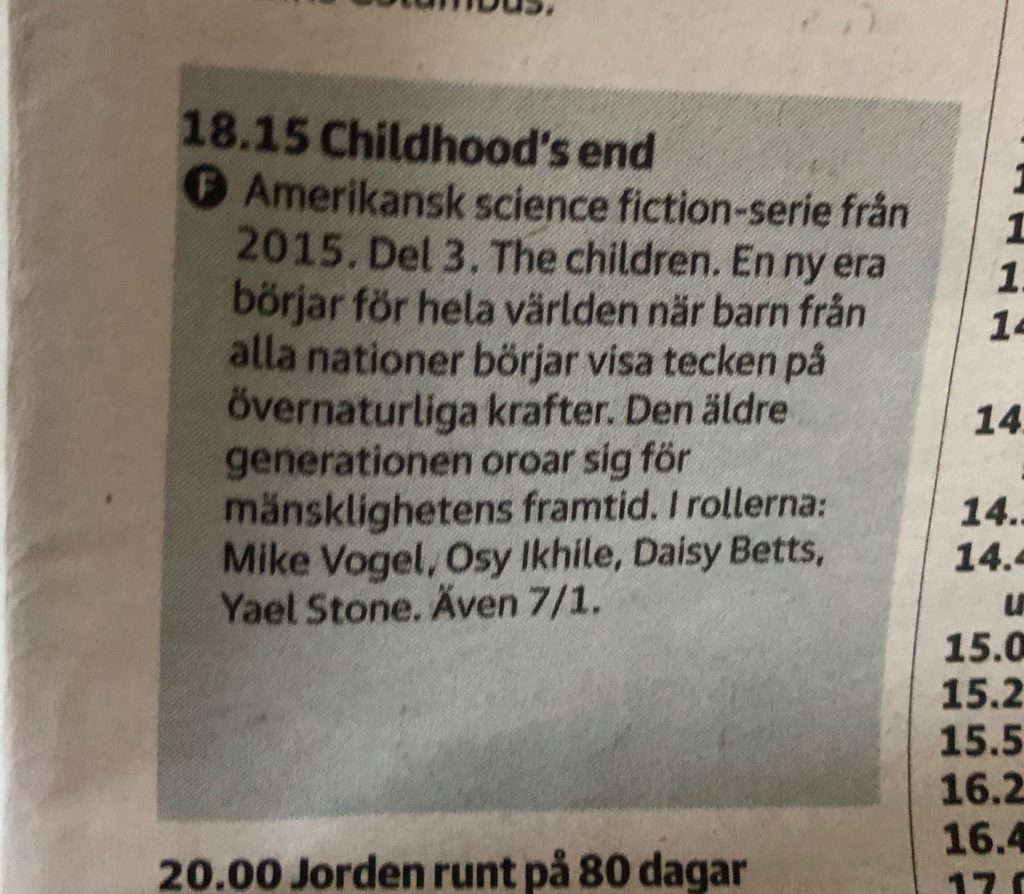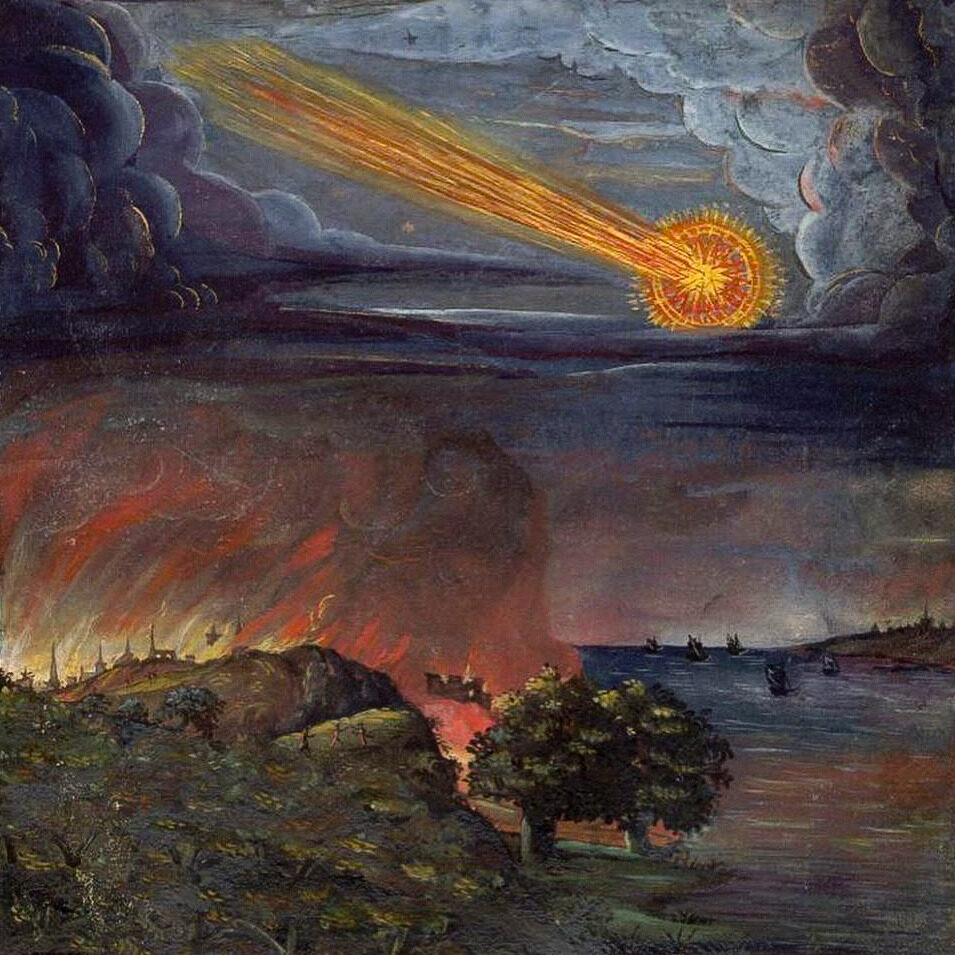To sum up – in 1978 a series of small mistakes created some characters out of nothing. The errors went undiscovered just long enough to be set in stone, and now these ghosts are, at least in potential, a part of every computer on the planet, lurking in the dark corners of character tables.
Dampkraft, “A Spectre is Haunting Unicode”, 29 juli 2018
New York är Venedig
Kim Stanley Robinson i en intervju, bl.a. om hans New York 2140:
I went to Venice to see how the city works when the streets are canals. And I went to New York often, including to places tourists don’t usually go, like the Cloisters, at the very north end of Manhattan Island – that’s a hill that’s 240 feet above sea level. In a Venetian New York, that would become incredibly valuable real estate. It might be a place for gigantic new skyscrapers. I also went to Hell Gate and Coney Island, places that would be drowned, and to other sections of the Bronx and Brooklyn, checking out what they might be like if they were submerged. Then also, the old Met Life Tower on Madison Square is an architectural imitation of the Campanile in Venice, but about ten times as big. It’s a nice visual joke – you’ve got a Venetian building in New York already, so that was clearly where I needed my characters to live.
Locus, “Kim Stanley Robinson: The Good Anthropocene”, 10 december 2018.
Láadan
Om Láadan:
Láadan is more than a conlang. It is what is known as an engineered language, designed as an experiment to test a specific hypothesis. Quoted in the Afterword of the 2000 Feminist Press reprint of Native Tongue, Elgin stated her hypothesis was that ‘language is our best and most powerful resource for bringing about social change.’
After ten years and two more novels in the Native Tongue trilogy, Elgin believed that her hypothesis failed. ‘Láadan got very little attention,’ Elgin remarked in a 2007 interview. “Not once did any feminist magazine (or women’s magazine) ask me about the language or write a story about it.’ In fact, Klingon became the foil to her Láadan. ‘The Klingon language, which is as ‘masculine’ as you could possibly get, has had a tremendous impact on popular culture,’ Elgin observed.
Literary Hub, “This Science Fiction Novelist Created a Feminist Language from Scratch”, 15 januari 2019.
Wikihistoria
Här, ett utdrag från veckans roligaste läsning – Desmond Warzels Wikihistory:
At 20:11:31, AsianAvenger wrote:
Very well. I shall return in mere moments, the savior of millions!At 20:14:17, LadyJustice wrote:
Just checked the timeline; congrats on your success, AsianAvenger!12/02/2104
At 10:52:53, LadyJustice wrote:
AsianAvenger?At 11:41:40, SilverFox316 wrote:
AsianAvenger, we need your report, buddy.At 17:15:32, SilverFox316 wrote:
Desmond Warzel, Wikihistory
Okay, apparently AsianAvenger was descended from Hong Xiuquan. Any volunteers to go back and stop him from negating his own existence?
Random sparat från Instagram
Randomiserade excerpter
För en tid sedan signade jag upp mig för Readwise, en tjänst som drar ihop och gör grejer med “highlights” i e-böcker en läser. I mitt fall nästan uteslutande Kindle-böcker. Jag marker ord och meningar ibland, och Readwise skickar ett mail om dagen med framslumpade stycken. En blir ju påmind om saker en har läst, men ibland är det obegripligt varför jag har valt att markera ett visst stycke eller mening. Ta det här t.ex.
He looked like a minor public official in a town where the Republicans have always been in power. He looked like a weakling, and you wanted to kick him right in the face.
L.J. Davis, A Meaningful Life (1971)
Jag misstänker att det var den där avslutande, och överraskande våldsamma, punchen på slutet som jag fastnade för.
Eller den här:
He was attracted to stairs, and although “awkward at it … he liked to run upstairs two at a time,”
George Dyson, Turing’s Cathedral (2012)
Här måste det snarare vara inledningen – att vara “attraherad av trappor” – som fastnade. Gissar att “He” är Alan Turing själv, men kan inte vara säker.
Utbrändhet
Anne Helen Petersens artikel “How Millennials Became The Burnout Generation“, som utifrån personliga erfarenheter av utbrändhet försöker hitta samhälleliga förklaringar till varför unga bränner ut sig, har väckt en massa uppmärksamhet. Även för en 45-årig X-generationist väckte den en hel del igenkänning och den radda av förklaringar hon anför fick åtminstone mig att tänka till en del kring kanske slarviga antaganden om “millenial”-generationen. Rekommenderad läsning. Här något som särskilt resonerade hos mig:
That realization recast my recent struggles: Why can’t I get this mundane stuff done? Because I’m burned out. Why am I burned out? Because I’ve internalized the idea that I should be working all the time. Why have I internalized that idea? Because everything and everyone in my life has reinforced it — explicitly and implicitly — since I was young. Life has always been hard, but many millennials are unequipped to deal with the particular ways in which it’s become hard for us.
Slutet på barndomen
Wikipedias sammanfattningar av handlingen i böcker och filmer är ofta komiska i sin direkthet. Så här står det om Arthur C. Clarkes Childhood’s End:
Humankind enters a golden age of prosperity at the expense of creativity.
George Dyson säger ju inte att det är det som sker när det digitala nu är “bortom kontroll”. Han skriver bara: “It doesn’t end well” (Wikpedia säger: “The Earth evaporates in a flash of light”). Han menar nog bara att ett skifte är på väg (eller har skett?) när en främmande oprogrammerbar kraft styr över allt och alla. Men han menar ändå att det fortfarande finns “enterprises” som förvandlats till våra nya överherrar:
The genius — sometimes deliberate, sometimes accidental — of the enterprises now on such a steep ascent is that they have found their way through the looking-glass and emerged as something else.
Om man för en stund tar Dyson på allvar, och låtsas om som att det inte är en mystifierande och ideologisk framställning av sakernas tillstånd, så låter det lite frestande att drömma om ett Nytt Aten. Vidare från Wikipedia:
Although humanity and the Overlords have peaceful relations, some believe human innovation is being suppressed and that culture is becoming stagnant. One of these groups establishes New Athens, an island colony in the middle of the Pacific Ocean devoted to the creative arts…
Men inget varar: “The members of New Athens destroy themselves with an atomic bomb.”
Noterade förresten att det finns en hyfsat ny TV-serie baserad på “Childhood’s End”. Kanske är TV-tablån den sista resten av en programmerbar värld:

Italo Calvinos “Sex punkter inför nästa årtusende”
Det här är ett tecken: både Robin Sloan (i ett utskick) och Maja Lundgren har de två senaste dagarna citerat och refererat till Italo Calvinos “Sex punkter inför nästa årtusende”. Var på jakt på den idag – trodde den skulle finnas på Ryös antikvariat – men gick bet. Finns översatt till svenska.
Flygande maskiner

